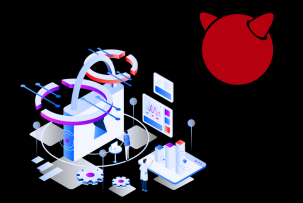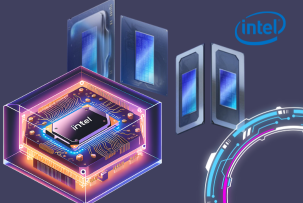Redox OS 0.9.0, an OS Based on Rust and Microkernel Architecture, Has Been Released
14:40, 10.09.2024
The Redox 0.9 operating system, which is based on the Rust language and the microkernel architecture, was officially released on September 9, 2024, by the Redox OS community after two years of development. The source code has been published on GitLab under the MIT license, and for testing purposes, Redox OS offers bootable live environments for physical hardware and virtual machines.
The demo version contains a set of games (DOOM, Neverball, Neverputt, sopwith, syobonaction), as well as specialized software. It also includes a music player with FLAC and WAV support, a web browser, an image reader, a Sodium text editor for working through the console, a file manager, a terminal emulator, and a text editor from the COSMIC project. The entire system is powered by the proprietary Orbital graphical shell.
Redox uses a microkernel architecture, where inter-process communication and resource management are implemented at the kernel level, and the rest of the kernel and user program functionality is placed in libraries. All drivers run in user space in isolated environments. To ensure compatibility with existing applications, the system provides a POSIX layer that allows you to run many applications without migrating them.
Hardware supported by Redox 0.9 includes keyboards, mice, touchpads (USB devices), graphics and sound cards, SATA (AHCI, IDE) NVMe interfaces, and others.
What's new in Redox 0.9:
- Improved application performance due to enhanced thread, memory, and signal management capabilities.
- Ported file manager, text editor, and terminal emulator from the COSMIC environment.
- A new level of cross-platform flexibility for programs from Linux and BSD systems, along with an increase in the number of ports to 1700.
- Porting of the Apache HTTP server, Simple HTTP Server, RustPython, GNU Make, Lua, Perl 5, and GNU Nano and Helix text editors.
- Improved system performance, including file system — RedoxFS, memory management system, etc.
- Better compatibility with virtual machines.
- Support for GUI libraries (Slint, Iced, and winit) in the Orbital display server and playback of music and video from GUI programs via a double click.
- Better compatibility with POSIX/Linux programs and libraries due to the use of Unix file paths.
- Reformatting the Relibc C-library to a full-fledged Rust structure.
- Improved support for the ARM64 architecture (Aarch64) and partial compatibility with the Raspberry Pi 3B+ board.
- Faster operation of the bootloader for UEFI.
- Expanded capabilities of the Contain driver and its added demonstration (via desktop-contain.toml).
- Improved well-known PCI and PCIe drivers and newly added VirtIO drivers.


